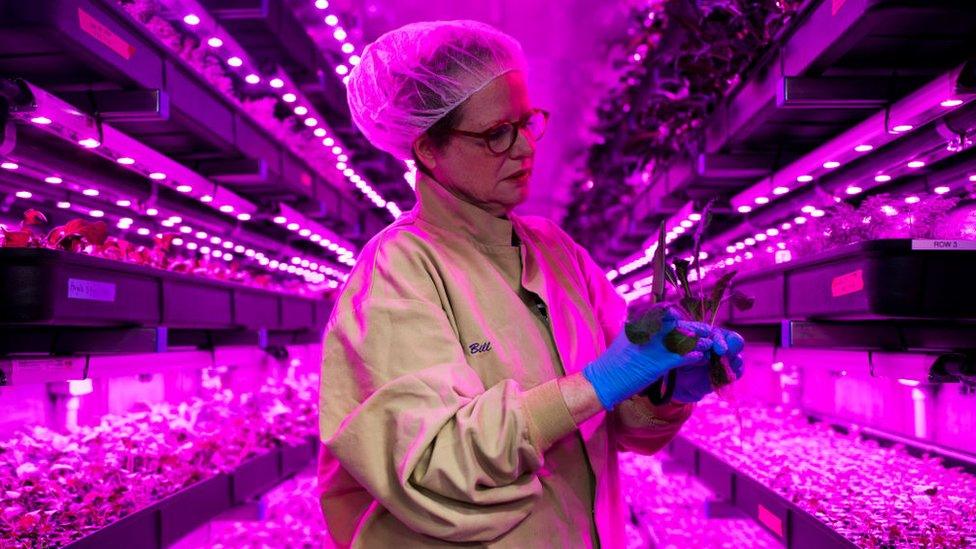Vertical farming in Gloucestershire may end some food imports
- Published
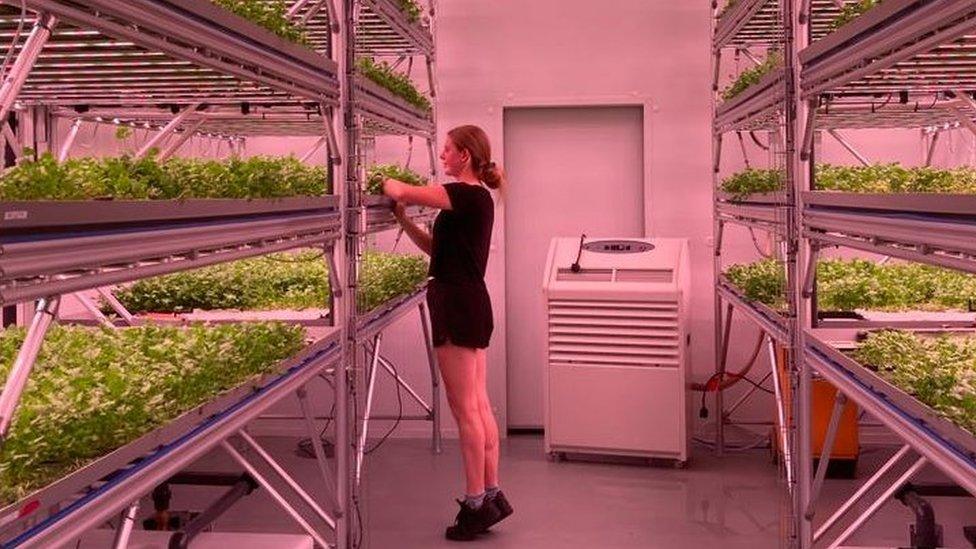
The vertical farm runs on renewable energy
A research base for vertical farming could end the need to import fruits, herbs and cut flowers, it is claimed.
The Jones Food Company runs vertical farms which grow produce in giant warehouses underneath LED lights all run with renewable energy.
The firm has opened a research centre in Bristol to discover more foods suitable for vertical farming.
The eco-friendly business is also about to open the largest vertical farm in the UK, in Gloucestershire.
Vertical farming saves space and the firm says it uses 95% less water and saves on carbon emissions with produce not having to be flown around the world.
It also yields a high amount of produce in a short time.

James Lloyd Jones said the business can help ease problems that traditional farming methods have
James Lloyd Jones, CEO and founder, explained his company uses renewable energy to power the farms to keep it as environmentally friendly as possible.
He said: "We use renewable energy to supply the farm, solar or wind, that take up normal farm land but lets the farm land recover but that power is then powering our vertical farms 365 days of the year.
"Its good for business and really good for planet.
"With vertical farms we want to become part of the UK supply chain, for supply security, we can get year round supply all the time from vertical farms."
It is hoped the research going on in Bristol could cut imports of certain foods within a decade.
Game-changing role
Science and Innovation Minister, Minister Steve Double said: "Our new Government Food Strategy highlights the game-changing role innovative technology, such as multi-acre glasshouses and vertical farms, can have in addressing the challenges the agriculture and horticulture sectors face in the years to come.
"We are backing farmers and growers to succeed, and last year we launched a £270m dedicated fund to help them innovate and invest in sustainable farming practices, benefiting food production and our environment."
The new vertical food factory is being built in Lydney in the Forest of Dean, Gloucestershire. Opening is planned for October with the first produce being ready in December.
The multi-million pound farm will offer 148,000sq ft of growing space, making it the world's largest vertical farm. It will be approximately the same size as almost seventy tennis courts and able to supply 1,000 tonnes plus of fresh produce to thousands of UK supermarkets.
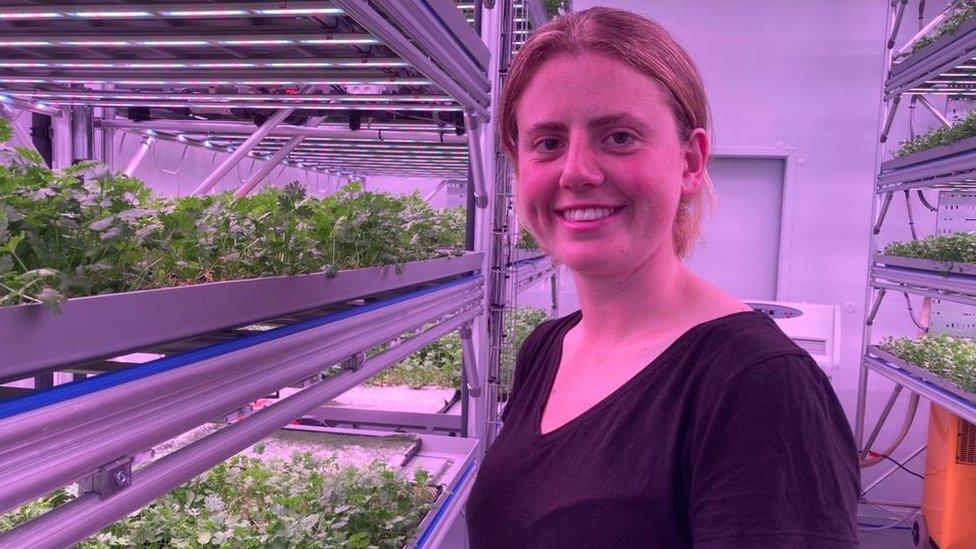
Hannah Hobhouse, Innovation Centre Grower
Hannah Hobhouse, a researcher at the Bristol centre, said: "I think vertical farming is going to play a bigger role in food production in the future, as pressure increases on reducing food miles. We need to start addressing the problems of intensive agriculture in what it is doing to the environment."

Follow BBC West on Facebook, external, Twitter, external and Instagram, external. Send your story ideas to: bristol@bbc.co.uk , external
Related topics
- Published23 August 2019
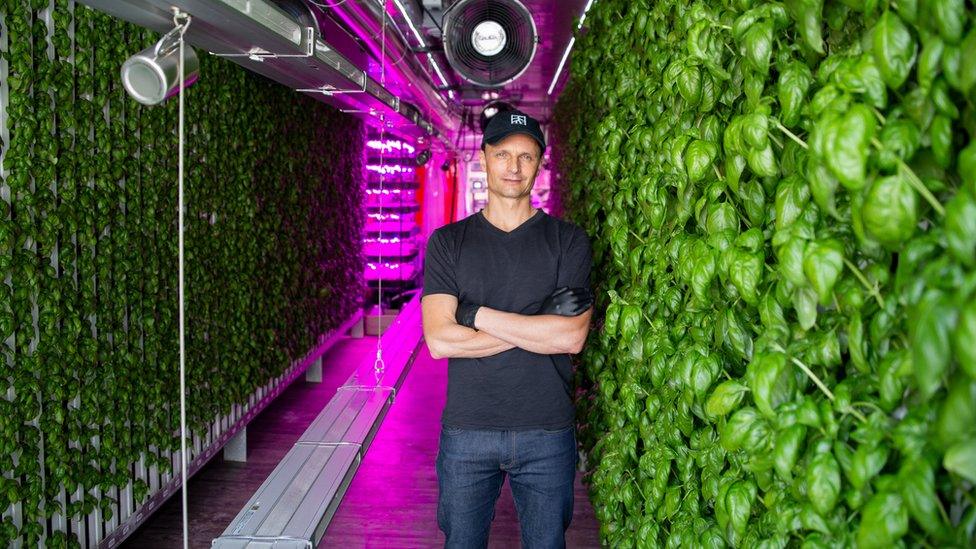
- Published18 June 2019
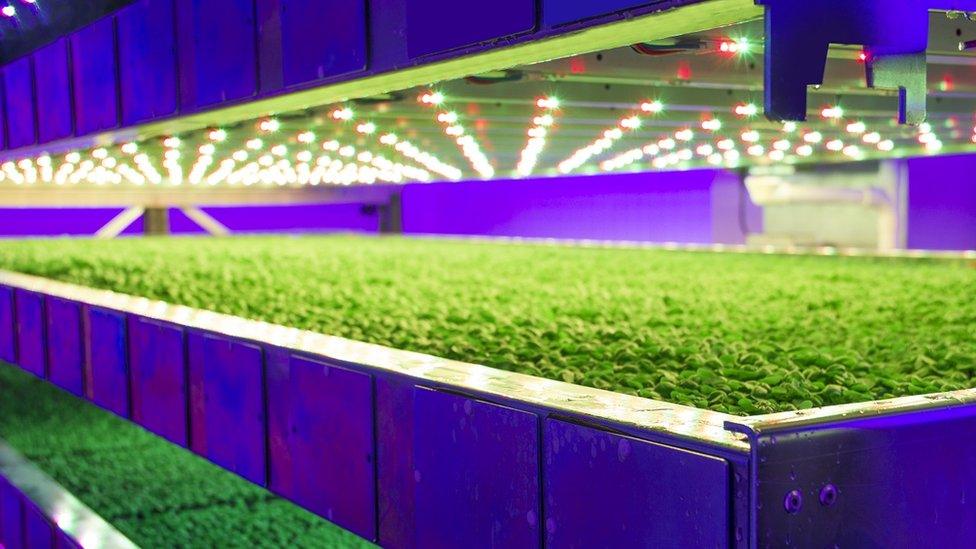
- Published11 June 2019
